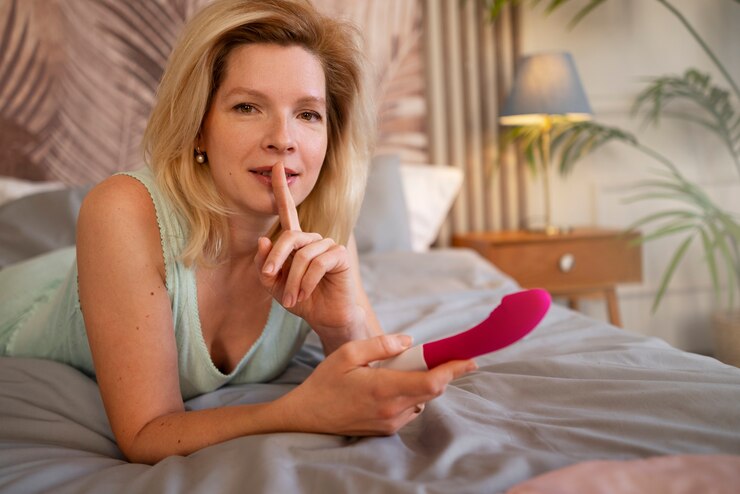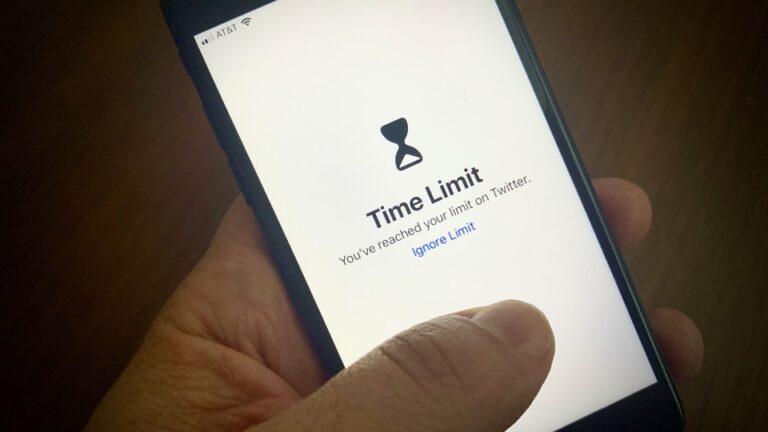Masturbation and Weight Loss: The Unexpected Link Between Self-Pleasure and Your Body Weight

The Connection Between Self-Pleasure and Your Body Weight
When it comes to the topic of self-pleasure and body weight, it is important to approach it from a scientific standpoint. There is limited research specifically examining the direct connection between self-pleasure and changes in body weight. However, there are some factors that may indirectly influence body weight and be related to self-pleasure.
One potential link is the impact of self-pleasure on metabolism. Some studies suggest that engaging in self-pleasure may increase heart rate and oxygen consumption, which could potentially contribute to a minor increase in caloric expenditure. However, it is crucial to note that these effects are generally short-lived and likely not significant enough to impact weight loss or gain on their own. Additionally, the duration and intensity of self-pleasure should also be considered, as they may vary greatly among individuals.
Furthermore, self-pleasure can also be related to hormonal balance. It has been suggested that orgasms release endorphins and oxytocin, which are known to promote feelings of relaxation, well-being, and reduced stress levels. However, the specific effects of these hormones on appetite and weight regulation are still not well understood. It is important to remember that weight management is a complex process influenced by multiple factors such as diet, physical activity, genetics, and overall lifestyle choices.
Overall, while the direct connection between self-pleasure and body weight may still need further investigation, the potential links surrounding metabolism and hormonal balance provide interesting areas for future research. It is important to approach this topic with scientific rigor and consider the multitude of factors that influence weight management. Discussing these aspects in a comprehensive and evidence-based manner can help individuals better understand the potential implications of self-pleasure on their overall well-being.
Understanding the Impact of Self-Pleasure on Metabolism

Self-pleasure, also known as masturbation, is a natural and common human behavior. While it is often viewed as a private and personal activity, its impact on various aspects of our health, including metabolism, is a topic worth exploring. Metabolism refers to the chemical processes that occur within our bodies to convert food into energy. It plays a critical role in weight management and maintaining a healthy body composition. However, the relationship between self-pleasure and metabolism is not yet fully understood, as research in this area is limited.
One study conducted on male subjects found that self-pleasure can temporarily increase heart rate and blood pressure, leading to a slight rise in metabolism. However, this increase is relatively small and does not contribute significantly to calorie expenditure. Another study suggested that sexual activity may have a more significant impact on metabolism due to the heightened physical exertion involved. Nonetheless, more scientific research is needed to definitively determine the extent to which self-pleasure influences metabolism.
It is important to note that self-pleasure may have individual variations when it comes to its impact on metabolism. Factors such as duration, intensity, and frequency of self-pleasure sessions, as well as an individual’s overall level of physical activity, can influence the metabolic response. Therefore, relying on self-pleasure as a primary means of increasing metabolism for weight management is not supported by sufficient evidence. Rather, it should be regarded as a pleasurable and personal activity that contributes to overall well-being.
Exploring the Relationship Between Self-Pleasure and Hormonal Balance
Self-pleasure, also known as masturbation, is a natural and common practice among both men and women. While it is often considered a pleasurable activity, its potential impact on hormonal balance is an area that has garnered considerable interest among researchers and experts in recent years.
Hormones play a crucial role in regulating various bodily functions, including metabolism, mood, and energy levels. Studies suggest that self-pleasure can have an influence on hormonal balance, particularly in relation to the release of certain hormones such as dopamine and oxytocin. These hormones are known to promote feelings of pleasure, relaxation, and intimacy, which can have a positive impact on overall well-being.
Research has shown that self-pleasure can increase the production and release of dopamine, a neurotransmitter associated with pleasure and reward. This surge in dopamine levels can provide a sense of satisfaction and contentment, which in turn may help alleviate stress and anxiety. Additionally, self-pleasure has been found to stimulate the release of oxytocin, often referred to as the “love hormone,” which is involved in social bonding and the promotion of positive emotions.
Whilst there is much anecdotal evidence regarding the potential benefits of hormonal balance through self-pleasure, further research is needed to fully understand the mechanisms at play and the long-term effects. It is important to keep in mind that individual experiences and responses may vary, and it is always advisable to consult with a healthcare professional for personalized advice and guidance.
How Self-Pleasure Can Influence Appetite and Cravings

Self-pleasure is an intimate act that can have various effects on the body, including influencing appetite and cravings. When engaging in self-pleasure, the body releases endorphins, also known as “feel-good” hormones, which can significantly impact one’s appetite. These endorphins produce a sense of relaxation and contentment, which can reduce the need for emotional or stress-induced eating.
Moreover, self-pleasure can also lead to a decrease in cravings for unhealthy foods. As the body releases dopamine during self-pleasure, it activates the reward center in the brain. This dopamine release can help in curbing cravings for high-calorie, sugary, or fatty foods that one may typically desire when experiencing stress or emotional turmoil. By engaging in self-pleasure, individuals can redirect their focus towards healthier food choices, promoting weight management and overall well-being.
The Effects of Self-Pleasure on Stress Levels and Weight Management

Self-pleasure, also known as masturbation, is a natural and common activity that can have various effects on our physical and mental well-being. When it comes to stress levels and weight management, self-pleasure can play a role in both aspects.
Firstly, let’s look at the impact of self-pleasure on stress levels. Engaging in self-pleasure activates the release of endorphins, which are natural chemicals that act as mood enhancers and help us relax. These endorphins can effectively reduce stress and promote a sense of overall well-being. Furthermore, self-pleasure can also lead to the release of oxytocin, which is often referred to as the “love hormone.” Oxytocin has been found to have anti-stress effects and can contribute to a sense of calm and contentment.
In terms of weight management, self-pleasure can indirectly affect our efforts in maintaining a healthy weight. When we experience stress, our body produces cortisol, also known as the stress hormone. Elevated levels of cortisol have been associated with increased appetite and cravings for unhealthy, high-calorie foods. By engaging in self-pleasure and reducing stress, we can potentially lower cortisol levels and, in turn, reduce the likelihood of stress-induced overeating or making unhealthy food choices. However, it’s important to note that self-pleasure alone is not a substitute for a balanced diet and regular exercise when it comes to weight management. It should be seen as a complementary activity that can contribute to overall well-being.
Debunking Myths: Separating Fact from Fiction About Self-Pleasure and Weight Loss
Self-pleasure, also known as masturbation, is a topic that has been surrounded by numerous myths and misconceptions, especially when it comes to its relationship with weight loss. One common myth is that self-pleasure can burn a significant amount of calories, leading to weight loss. However, the truth is that the number of calories burned during self-pleasure is relatively low. According to a study published in the Journal of Sexual Medicine, the average calorie expenditure during self-pleasure was found to be only about 3-4 calories per minute, which is equivalent to the energy expended during light-intensity physical activities such as walking slowly.
Another myth is that self-pleasure can lead to muscle loss, resulting in a decrease in overall body weight. However, there is no scientific evidence to support this claim. In fact, self-pleasure can actually have positive effects on muscle tone and function. When we engage in self-pleasure, there is an increase in blood flow to the genital area, which can improve muscular health and even lead to stronger pelvic floor muscles. These muscles play a crucial role in supporting the internal organs and maintaining bladder and bowel control. Therefore, far from causing muscle loss, self-pleasure can contribute to overall muscular well-being.
Here’s a short data table debunking myths and separating fact from fiction about self-pleasure and weight loss:
| Myths About Self-Pleasure and Weight Loss | Key Concepts | Credible Source |
|---|---|---|
| Myth: Self-Pleasure Burns Significant Calories | – Key Concept: While self-pleasure involves physical activity, it does not burn a significant number of calories to contribute to weight loss. The energy expended is relatively low. | Mayo Clinic – Calories Burned in 30 Minutes |
| – Considerations: Weight loss primarily depends on factors like diet and regular exercise, not occasional physical activity. | ||
| Myth: Frequent Self-Pleasure Causes Weight Gain | – Key Concept: There is no scientific evidence linking regular self-pleasure to weight gain. Body weight is influenced by various factors, and this activity is not a significant contributor. | Harvard Health Blog – The Truth About the Link Between Sex and Weight |
| – Considerations: Weight is more influenced by overall lifestyle and dietary choices than by sexual activity. | ||
| Myth: Self-Pleasure Boosts Metabolism | – Key Concept: While some physical activity occurs during self-pleasure, it is not sufficient to significantly boost metabolism or impact weight management. | Cleveland Clinic – Metabolism Myths and Facts |
| – Considerations: Factors like regular exercise and a balanced diet have a more substantial impact on metabolism. | ||
| Myth: Self-Pleasure Causes Weight Loss | – Key Concept: Any temporary weight loss associated with self-pleasure is due to fluid loss and is not a sustainable or effective method for actual weight management. | Johns Hopkins Medicine – Weight Loss Myths |
| – Considerations: Sustainable weight loss requires a comprehensive approach involving diet, exercise, and lifestyle changes. | ||
| Myth: Specific Techniques Target Belly Fat | – Key Concept: There is no evidence to support the idea that certain self-pleasure techniques specifically target or reduce belly fat. Spot reduction is a myth. | American Council on Exercise – Spot Reduction |
| – Considerations: Achieving a flat stomach requires overall fat loss through a combination of healthy habits. |
The Role of Dopamine and Endorphins in Self-Pleasure and Weight Control
Dopamine and endorphins play a crucial role in our overall well-being and their impact extends beyond pleasure and mood elevation. When it comes to self-pleasure, these neurotransmitters also have a hand in weight control. Dopamine, often referred to as the “feel-good” neurotransmitter, is released during self-pleasure and is associated with pleasure, reward, and motivation. It can have a positive influence on our weight control efforts by boosting our motivation to engage in physical activities and maintain a healthy diet.
Endorphins, on the other hand, are peptides that act as natural pain relievers and mood enhancers. When we engage in self-pleasure and experience orgasm, endorphins are released, creating a sense of euphoria and relaxation. These endorphins can help reduce stress levels, which in turn can be beneficial for weight control. High stress levels often lead to emotional eating and cravings for unhealthy foods, but the release of endorphins during self-pleasure can help alleviate stress and consequently reduce the likelihood of turning to food as a coping mechanism.
In the next section, we will delve deeper into the differences between self-pleasure and sexual activity in terms of weight management. By understanding the nuances between these two, we can better grasp how self-pleasure alone may impact our weight control efforts.
Is there a Difference Between Self-Pleasure and Sexual Activity in Terms of Weight Management?
There is often a misconception that self-pleasure and sexual activity have different impacts on weight management. However, from a physiological perspective, both activities can be considered similar in terms of their effect on weight. When it comes to calorie burning, engaging in self-pleasure and sexual activity both require physical exertion, which can contribute to overall energy expenditure.
Research has shown that during self-pleasure or sexual activity, heart rate, blood pressure, and respiratory rate increase, leading to a temporary increase in metabolic rate. In fact, one study found that self-pleasure resulted in an average energy expenditure of 150 calories for men and 69 calories for women. Sexual activity, on the other hand, can burn around 85 calories for men and 69 calories for women. These figures may vary depending on factors such as intensity, duration, and individual characteristics, but they provide a general idea of the potential energy expenditure involved.
While engaging in self-pleasure or sexual activity alone may not be sufficient for significant weight loss, incorporating them as part of an overall healthy lifestyle can contribute to overall energy balance. It is important to note, however, that weight management is a complex topic influenced by various factors such as diet, physical activity, and genetics. Therefore, it is crucial to approach weight management holistically and not rely solely on self-pleasure or sexual activity as a means of weight control.
The Psychological Aspect: Self-Pleasure as a Coping Mechanism for Emotional Eating
Emotional eating is a common phenomenon that many individuals struggle with. It involves using food as a means to cope with stress, anxiety, sadness, or other emotions. However, it is important to recognize that there are alternative methods to deal with these emotions, one of which is self-pleasure.
Self-pleasure, also known as masturbation, has been shown to release endorphins, serotonin, and oxytocin, which are neurotransmitters that promote feelings of pleasure and relaxation. Engaging in self-pleasure can provide a similar sense of comfort and stress relief as emotional eating, but without the negative impact on one’s physical health. It allows individuals to connect with their own bodies, explore their desires, and experience pleasure in a healthy and fulfilling way.
Strategies for Incorporating Self-Pleasure into a Healthy Lifestyle for Weight Loss
Incorporating self-pleasure into a healthy lifestyle for weight loss is not only possible but can also have numerous benefits for both your physical and mental well-being. One strategy to consider is scheduling regular self-pleasure sessions as part of your overall self-care routine. Just like you make time for exercise or meal planning, setting aside dedicated time for self-pleasure can help prioritize and normalize its importance in your life.
Another helpful strategy is exploring different techniques and positions during self-pleasure that require physical movement. Engaging in activities that get your heart rate up and increase your overall energy expenditure can contribute to weight loss. Incorporating these movements can be as simple as varying your body positions or incorporating props such as exercise balls or resistance bands. Additionally, integrating mindfulness practices into your self-pleasure routine, such as deep breathing or meditation, can help you stay present in the moment and be more in tune with your body’s hunger and fullness cues.
Addressing Concerns and Misconceptions Surrounding Self-Pleasure and Body Image
Body image concerns and misconceptions surrounding self-pleasure have been topics of discussion for quite some time. One common concern is the idea that self-pleasure can lead to weight gain or body fat accumulation. However, it is important to clarify that engaging in self-pleasure itself does not directly contribute to weight gain. Weight gain occurs when caloric intake exceeds caloric expenditure, and self-pleasure does not burn a significant amount of calories.
Another misconception is that self-pleasure can negatively impact body image. It is essential to understand that body image is a complex issue influenced by various factors such as societal standards, personal experiences, and self-perception. Engaging in self-pleasure does not inherently lead to a negative body image. In fact, self-pleasure can promote self-acceptance and self-love, which are crucial elements of a positive body image. It can help individuals connect with and appreciate their bodies, fostering a healthier relationship with themselves. It is important to address these concerns and misconceptions surrounding self-pleasure and body image to promote accurate information and open conversations about sexual well-being and self-acceptance.
The Importance of Self-Care and Self-Love in Achieving Sustainable Weight Loss
Self-care and self-love play a crucial role in achieving sustainable weight loss. When it comes to managing weight effectively, it is important to prioritize your overall well-being, both mentally and physically. Taking care of yourself and cultivating self-love can positively impact your weight loss journey in various ways.
Firstly, self-care practices such as regular exercise, adequate sleep, and consuming a balanced diet can contribute to weight management. Engaging in physical activities not only helps burn calories but also boosts metabolism and improves overall fitness. Getting sufficient sleep is also essential as it regulates appetite hormones, preventing overeating and promoting healthy weight maintenance. Additionally, adopting a nutritious and balanced diet rich in fruits, vegetables, lean proteins, and whole grains can provide your body with the essential nutrients it needs, supporting your weight loss efforts.
Moreover, self-love plays a significant role in sustainable weight loss. Accepting and appreciating your body as it is, regardless of its current weight, can foster a positive mindset and improve your relationship with food. By cultivating self-love, you can develop a healthy body image and reduce the likelihood of engaging in negative behaviors such as emotional eating or extreme dieting. Building a strong foundation of self-love also enables you to establish long-term healthy habits that promote overall well-being rather than solely focusing on weight loss.
What is self-care and self-love?
Self-care refers to taking deliberate actions to improve one’s physical, mental, and emotional well-being. Self-love involves developing a positive relationship with oneself and practicing self-acceptance and self-compassion.
How does self-care and self-love relate to weight loss?
Self-care and self-love are important factors in achieving sustainable weight loss. By prioritizing self-care and cultivating a positive self-image, individuals are more likely to make healthier choices, maintain consistent habits, and have a more positive outlook on their weight loss journey.
Can self-pleasure really impact weight loss?
Yes, self-pleasure can have an impact on weight loss. It can influence metabolism, hormonal balance, appetite, cravings, stress levels, and even the release of dopamine and endorphins, all of which can contribute to weight management.
Is there a difference between self-pleasure and sexual activity in terms of weight management?
While both self-pleasure and sexual activity can have positive effects on weight management, there may be some differences. Self-pleasure can be a more accessible and convenient option for individuals looking to incorporate it into their weight loss routine, as it does not rely on a partner or external factors.
Can self-pleasure be a coping mechanism for emotional eating?
Yes, self-pleasure can serve as a healthy coping mechanism for emotional eating. Engaging in self-pleasure can provide a sense of comfort, stress relief, and pleasure, which can help individuals reduce their reliance on food as a source of emotional support.
How can self-pleasure be incorporated into a healthy lifestyle for weight loss?
Self-pleasure can be incorporated into a healthy lifestyle for weight loss by considering it as a form of self-care. Prioritizing self-pleasure as a regular practice can help individuals reduce stress, improve hormonal balance, manage cravings, and promote overall well-being.
Are there any concerns or misconceptions surrounding self-pleasure and body image?
Yes, there can be concerns and misconceptions surrounding self-pleasure and body image. Some individuals may feel shame or guilt about engaging in self-pleasure, which can negatively impact their body image. However, it is important to understand that self-pleasure is a natural and healthy aspect of human sexuality.
How does self-love play a role in achieving sustainable weight loss?
Self-love plays a crucial role in achieving sustainable weight loss by promoting self-acceptance, positive body image, and a healthy mindset. When individuals love and care for themselves, they are more likely to make choices that support their overall well-being, including maintaining a healthy weight.
What are some strategies for practicing self-care and self-love in the context of weight loss?
Some strategies for practicing self-care and self-love in the context of weight loss include setting realistic goals, celebrating small victories, prioritizing rest and relaxation, engaging in activities that bring joy, practicing mindfulness and positive self-talk, and seeking support from loved ones or professionals.
Why is self-care and self-love important for achieving sustainable weight loss?
Self-care and self-love are important for achieving sustainable weight loss because they help individuals develop a positive relationship with their bodies, make healthier choices, maintain consistent habits, manage stress, and cultivate a long-term, positive mindset towards their weight loss journey.





